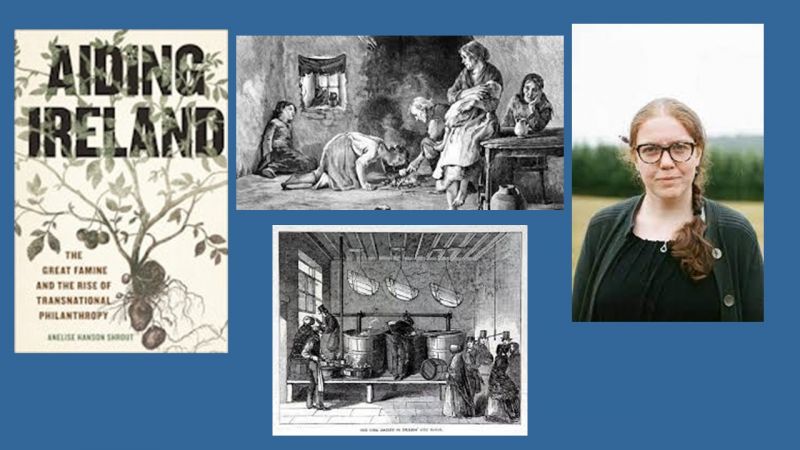Famine brought ruin to the Irish countryside in the nineteenth century. In response, people around the world and from myriad social, ethnic, and religious backgrounds became involved in Irish famine relief. They included enslaved Black people in Virginia, poor tenant farmers in rural New York, and members of the Cherokee and Choctaw nations, as well as plantation owners in the US south, abolitionists in Pennsylvania, and, politicians in England and Ireland. Most of these people had no personal connection to Ireland. For many, the famine was their first time participating in distant philanthropy.
Aiding Ireland investigates the Irish famine as a foundational moment for normalizing international giving. Anelise Hanson Shrout argues that these diverse men and women found famine relief to be politically useful. Shrout takes readers from Ireland to Britain, across the Atlantic to the United States, and across the Mississippi to Indian Territory, uncovering what was to be gained for each group by participating in global famine relief. Aiding Ireland demonstrates that international philanthropy and aid are never simple, and are always intertwined with politics both at home and abroad.
